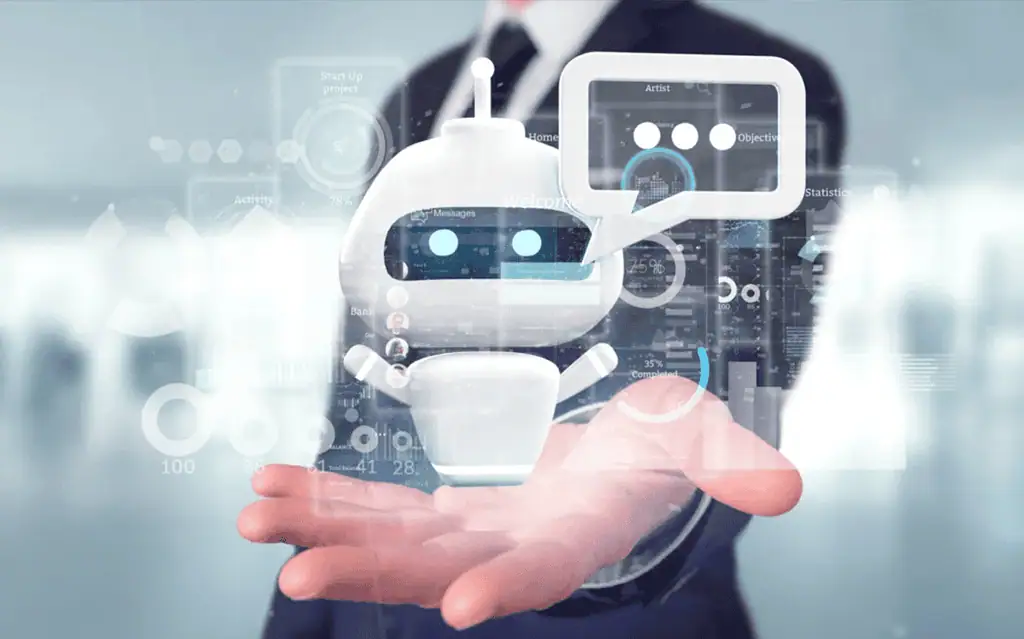
Sponsored Content | Digital Free Press
AI-driven chatbots are transforming how businesses interact with users, offering real-time support, predictive responses, and enhanced engagement. Advances in machine learning and natural language processing (NLP) have made these chatbots more human-like, allowing them to handle complex queries, personalize interactions, and provide instant assistance across industries.
From e-commerce and healthcare to financial services and gaming, AI-powered chatbots are reshaping customer experiences with unprecedented efficiency and adaptability. Companies investing in this technology are gaining a competitive edge by improving user retention, reducing operational costs, and ensuring seamless automation.
Evolution of AI Chatbots in Customer Service
The first chatbot models were basic rule-based systems that could only respond to predefined queries. These early systems lacked flexibility and often frustrated users with their limited conversational capabilities. Businesses used them for handling frequently asked questions, but they failed to engage in natural, meaningful conversations.
With the integration of NLP, chatbots evolved into more sophisticated digital assistants. Companies like OpenAI and Google invested heavily in deep learning algorithms that enabled chatbots to interpret context, detect user intent, and generate human-like responses. NLP advancements allowed chatbots to handle complex inquiries, improving user experience significantly.
The Role of Machine Learning in Enhancing Chatbot Efficiency
Machine learning enables chatbots to learn from user interactions and improve over time. AI systems analyze previous conversations to refine their language models, making future responses more accurate and contextually appropriate. This adaptive capability ensures that chatbots become more efficient with each interaction.
AI-driven chatbots leverage predictive analytics to anticipate user needs before they even ask a question. By analyzing browsing history, previous inquiries, and engagement patterns, chatbots can suggest solutions or products tailored to individual preferences, improving customer satisfaction and conversion rates.
AI Chatbots in the Financial Sector
Financial institutions have adopted AI chatbots to handle customer queries, process transactions, and provide financial advice. Banks like JPMorgan Chase and Wells Fargo use AI-powered assistants to help users check account balances, schedule payments, and detect fraudulent activities in real time.
Investment platforms use AI chatbots to offer portfolio recommendations, track market trends, and provide instant updates on stock performance. AI-powered financial assistants help investors make data-driven decisions without requiring human intervention, reducing costs and improving accessibility.
AI Chatbots in E-Commerce and Retail
Retailers integrate AI chatbots into their websites and apps to guide customers through their shopping journey. These chatbots recommend products based on user preferences, offer personalized discounts, and even assist with virtual try-ons, enhancing the overall shopping experience.
E-commerce platforms rely on AI chatbots to handle order tracking, processing returns, and managing customer complaints. Companies like Amazon and Shopify use chatbots to provide instant updates, reducing wait times and improving customer satisfaction.
AI Chatbots in the Healthcare Industry
Healthcare providers deploy AI chatbots to assist patients with appointment scheduling, medication reminders, and symptom assessment. These digital assistants enhance accessibility to medical information and reduce the burden on healthcare professionals.
Mental health apps incorporate AI-powered chatbots to offer cognitive behavioral therapy (CBT) exercises, mood tracking, and emotional support. These chatbots provide immediate assistance to users dealing with stress, anxiety, or depression, ensuring accessible mental health resources.
AI Chatbots in the Gaming and Entertainment Industry
Gaming companies utilize AI chatbots to provide game recommendations, troubleshoot technical issues, and assist players with in-game challenges. These chatbots improve the overall gaming experience by offering instant, accurate solutions to player queries.
AI-powered chatbots are redefining customer interactions, particularly in industries that require instant, personalized support. Many Arizona-based tech firms are leading advancements in NLP, allowing digital platforms to improve user assistance, fraud detection, and automated recommendations.
These innovations have been applied in Arizona sports betting promo codes, where AI-driven chatbots assist users with betting inquiries, provide real-time odds updates, and enhance account security, ensuring a streamlined betting experience.
AI Chatbots in Travel and Hospitality
AI chatbots assist travelers by providing real-time flight updates, hotel bookings, and itinerary management. Travel companies like Expedia and Booking.com use chatbots to enhance customer service by offering instant responses to user inquiries.
By analyzing travel preferences and past bookings, AI chatbots suggest destinations, activities, and dining options tailored to individual tastes. These personalized recommendations create a more enjoyable and customized travel experience for users.
AI Chatbots in Education and E-Learning
Educational institutions integrate AI chatbots into e-learning platforms to assist students with coursework, answer academic queries, and provide study resources. These AI tutors adapt to individual learning styles, enhancing educational outcomes.
Language learning apps utilize AI-driven chatbots to provide conversational practice, grammar corrections, and real-time translations. Platforms like Duolingo and Babbel incorporate AI to enhance user engagement and improve language proficiency.
Security and Ethical Considerations in AI Chatbots
AI chatbots handle sensitive user data, raising concerns about privacy and security. Businesses must implement robust encryption and compliance measures to protect user information from cyber threats and unauthorized access.
AI models must be trained to minimize biases and ensure fair, unbiased interactions. Companies developing chatbots invest in ethical AI frameworks to prevent discriminatory or misleading responses, ensuring responsible AI deployment.
The Future of AI-Powered Chatbots
As virtual reality (VR) and the metaverse continue to expand, AI chatbots will play a crucial role in creating immersive digital experiences. These chatbots will assist users in navigating virtual environments, enhancing interactions within digital spaces.
Future AI chatbots will feature even more advanced NLP capabilities, enabling seamless, near-human interactions. These chatbots will become indistinguishable from human agents, providing businesses with scalable, efficient customer support solutions.
AI-powered chatbots are revolutionizing digital interactions across industries, improving efficiency, personalization, and user satisfaction. As machine learning and NLP continue to evolve, businesses will further integrate AI-driven solutions to create AI music for example to enhance customer engagement, automate processes, and drive innovation in the digital landscape.




























